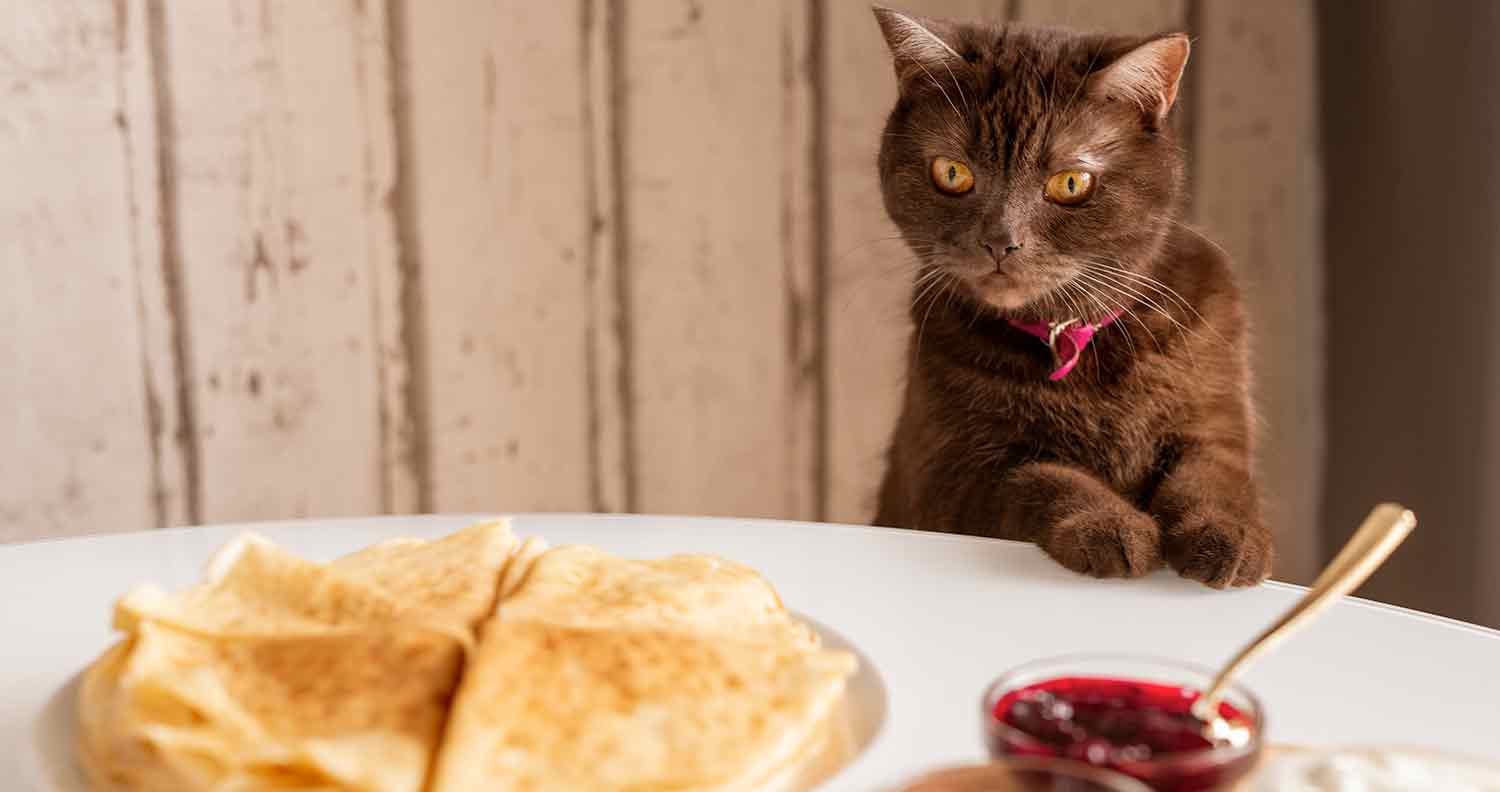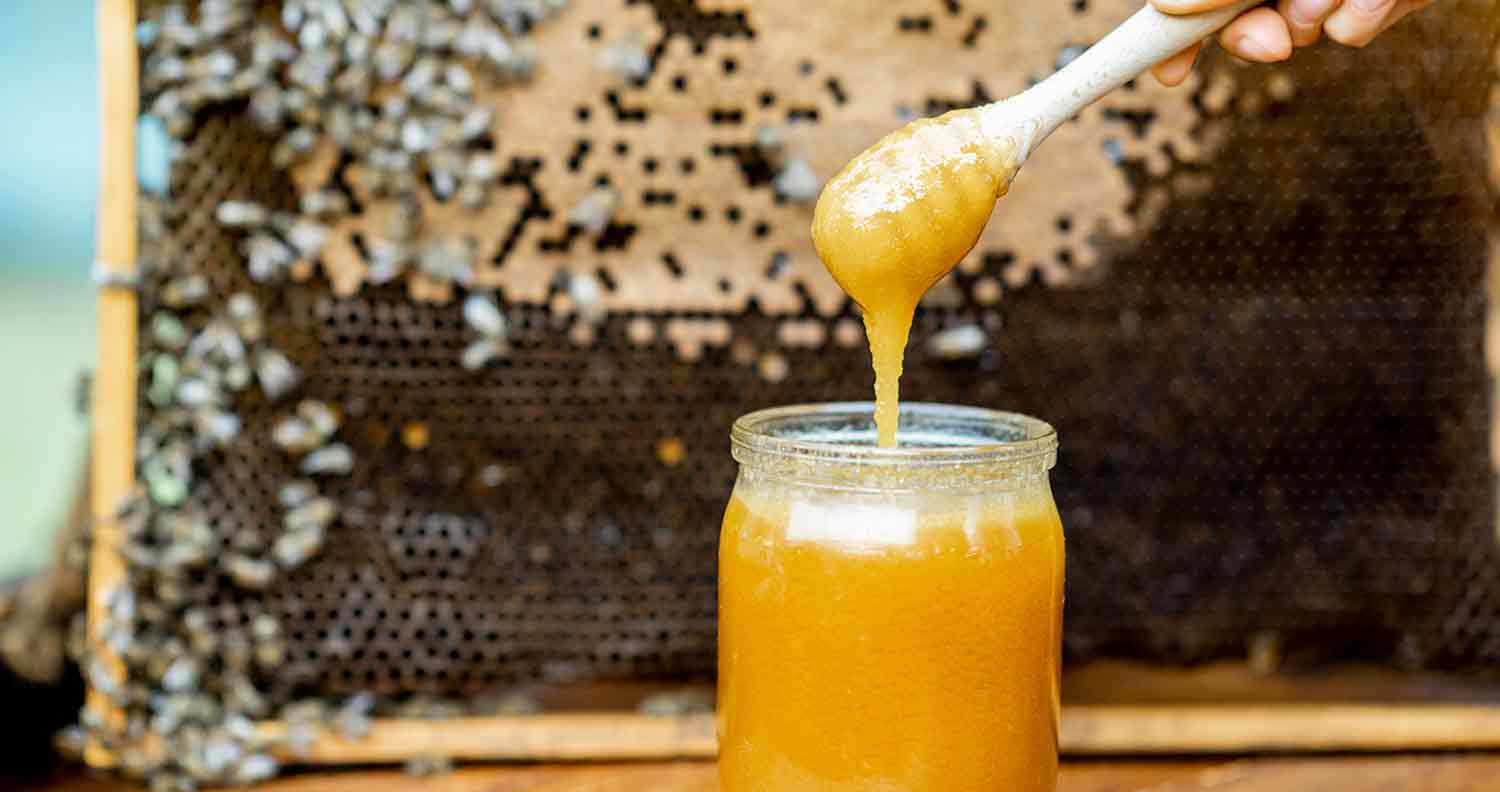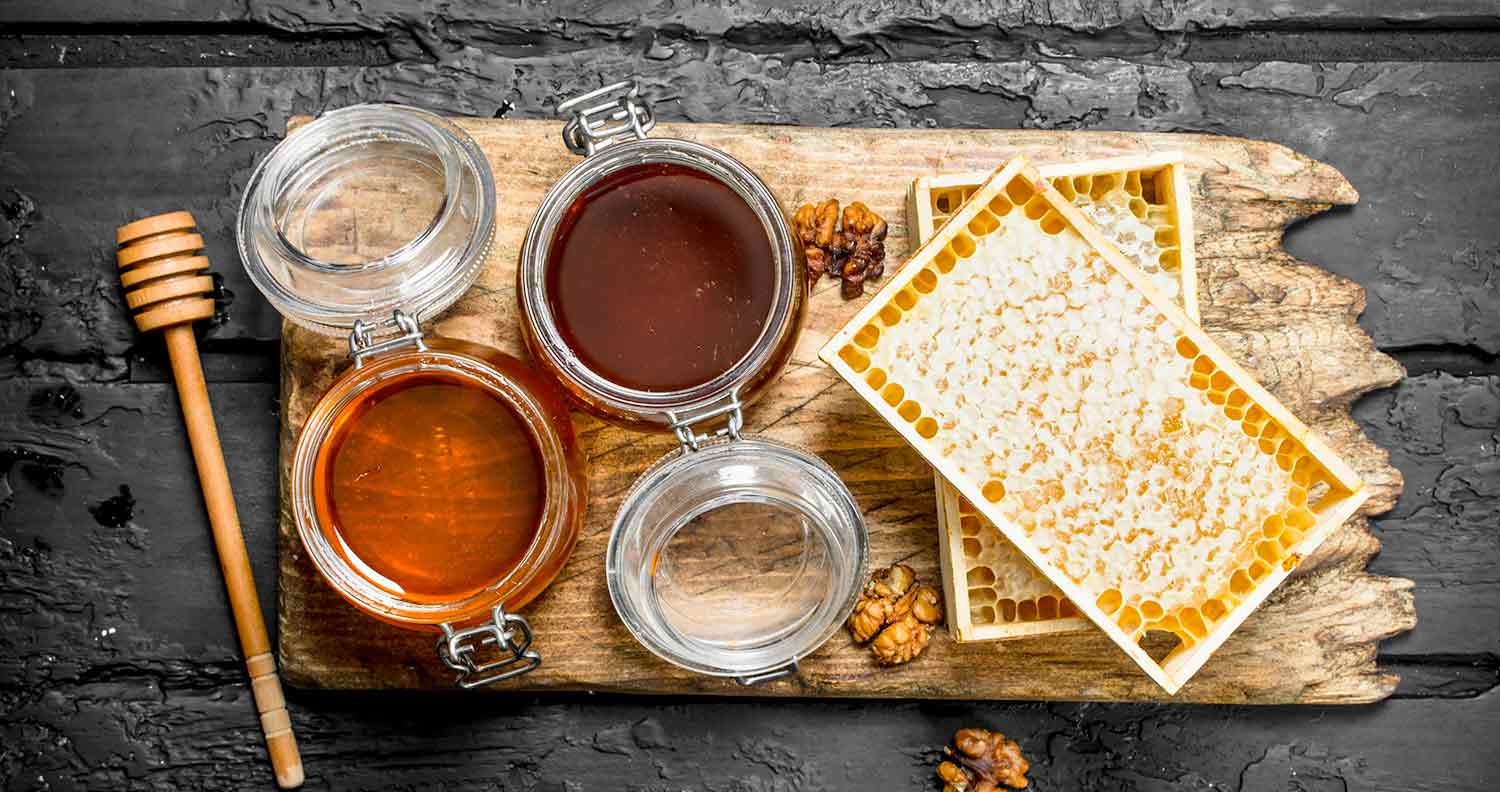Can Cat’s Eat Honey? (Is Honey Good for Cats?)
Share:
Honey, the nectar of the Gods! From ancient times, it has been linked with beauty, royalty, and abundance. Honey contains crucial nutrients and is a naturally occurring product made by honeybees from flower nectar.
It has been consumed by most societies through the ages, both for nutritional & health benefits, as well as medicinal reasons.

Read this next: Bone Broth For Cats (What Exactly Are Cat Broths?)
Even today, it is widely used.
Taking honey with lime is a known remedy for weight loss. Honey is also great for wounds and injuries.
It has traditionally been used to treat eye problems, infections, allergies, digestive system issues, sore throat problems, skin rashes, and a plethora of other illnesses & issues.
It is widely used as a nutritious supplement. But is it as beneficial for cats and kittens as it is for humans?
Can your beloved cat eat it and not fall sick?
Can Cats Eat Honey?
The short answer is that feeding a small amount of honey to your cat is certainly not an issue. It’s not immediately toxic to your feline friend. But it is important to remember that your cat’s digestion system is entirely different from that of a human.
Cats are carnivorous animals that thrive on protein obtained from animal flesh. They do require fiber, but much less than humans, and obtain their necessary vitamins, minerals, and nutrients from meat-based food.
Their bodies are not designed to process lactose, fructose, and glucose. Honey is incredibly high in these types of sugar.
Cats lack glucokinase in the liver, which is a crucial enzyme for controlling carbohydrate sugar levels in the body.

Giving honey to your cat every day will do more harm than good, as it will make the animal sick and fat.
It may even lead to other far more complicated health issues. However, in certain specific cases, it can be given in measured quantities.
Can Cats Have Honey & How Much?
Your cat would certainly want a share of whatever it is you’re eating. If you are someone who eats honey regularly, your feline buddy may want to join you. But be careful of the quantity of honey you dole out into their bowl.
Since cats are obligate carnivores they are unable to properly process some of the ingredients found in some foods, it is better to stay on the safe side and give them just a teaspoon of honey at best.
If at all possible, it would be best not to give them any honey at all.
But if your feline friend remains insistent, a small taste every now and then won’t do much harm.

Read this next: Can Cats Eat Bugs? (Is it Safe For Cats To Eat Insects)
When is Honey Good For Cats?
Sometimes, cats, especially rescued ones, are so weak and undernourished that they require extra nutrition to survive.
Since honey treats internal wounds, it is possible to give small doses of this cat food option to recuperating cats.
It will help with soreness, cat flu, and wound healing.
Honey can also be applied externally like a balm on the lesions. However, it must be stopped as soon as a cat starts recovering since honey is harmful to cats in the long run.
Side Effects
Eating too much honey can cause an upset stomach and other unpleasant health complications even in humans. It is even more harmful to cats that cannot digest it. If your cat has eaten honey for the first time, you should keep a lookout for symptoms such as diarrhea and vomiting.
Signs of such discomfort mean you may have to take your cat to the vet.
One of the serious side effects that your cat may have to endure is botulism. Ingestion of botulinum toxin, a substance produced by the bacteria Clostridium botulinum, causes toxicity in your cat.
It can even lead to paralysis in cats and may be fatal.
Some common signs of botulism in cats include unusual lethargy, drooling, weakness, and depression.
Another side effect of eating too much honey would be weight gain in your cat. It is high in calories and will only make your cat sluggish and plump.
While a plump cat may be romanticized on the internet and in the movies, it is not healthy for your feline friend to put on so much weight.
Your kitty may also have to endure stomach aches and painful cramps when it eats too much honey. If you continue to give your cat honey, it may trigger such pains, sometimes severe ones as well.

Read this next: Can Cats Eat French Fries? (Are They Safe?)
Honey also affects your cat’s coat, and rashes can occur if your cat eats too much honey. You might also notice some bald patches or hair shedding in the coat.
Honey is not a good cat treat and giving it to your cat is not advised. If you must, restrict it to as little as you can and keep a look out for any signs of the symptoms.
In such cases, stop giving honey to your cat immediately and seek medical help.
If the cat is down with aches, cramps, or rashes, you can wait for a few hours to see if it gets better.
In case of no signs of improvement, take your cat to the vet. In severe cases, medical aid is a must.
Can Cat's Eat Honey: Summary
So can cats cat's eat honey? Too much sugar can also lead to rising blood sugar levels and feline diabetes.
Cats are primarily meat eaters, so meat in any form, be it liver, chicken, fish, or turkey, is the best food for your cat.
However, honey is certainly not one of them and must be avoided completely (especially with diabetic cats) and/or restricted to the bare minimum.
It may not always be possible to say no to your cat when they ask to share the food you’re eating. But you should always keep in mind that what’s good for you is not necessarily good for them.
Most foods you eat regularly can even be very toxic.
Although honey is not immediately toxic, you should keep it away from your pet and not let them get anywhere near the sweet food.
Share:

